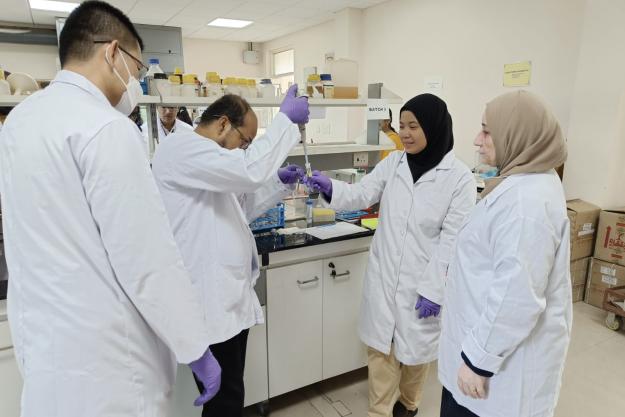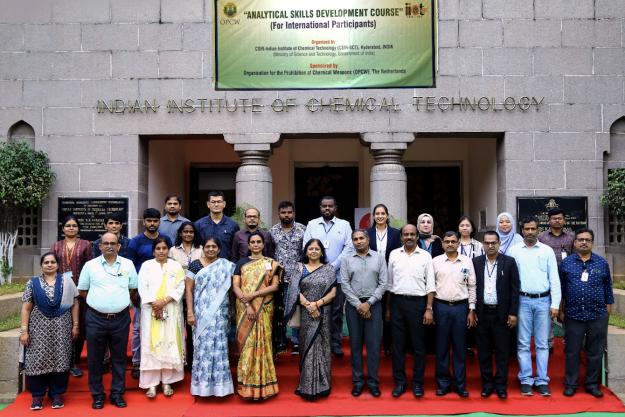
THE HAGUE, Netherlands— 25 October 2022—The Organisation for the Prohibition of Chemical Weapons (OPCW), in collaboration with the Indian Institute of Chemical Technology (IICT), organised an advanced analytical chemistry course for Asian Member States held in Hyderabad, India from 10 to 21 October.
The course enhanced participants’ theoretical knowledge and practical skills in the analysis of chemicals relevant to the Chemical Weapons Convention (CWC). Attendees received comprehensive lectures on and practiced using advanced chemical analysis techniques such as gas chromatography (GC) and gas chromatography-mass spectrometry (GC-MS). Additionally, methods for sample preparation and derivatisation were also covered in depth.
The Chairperson of the Indian National Authority for the Chemical Weapons Convention, Ms Neel Kamal Darbari opened the training in the presence of IICT’s Director, Dr Srinivasa Reddy. In her opening remarks, Ms Darbari underlined the benefits of OPCW’s capacity-building programmes not only for the development of analytical and technical skills, but also for the promotion of peaceful uses of chemistry.
The event was attended by ten analytical chemists from the following nine OPCW Member States: Bangladesh, Cambodia, Iraq, Malaysia, Maldives, Nepal, Philippines, Saudi Arabia, and Sri Lanka.

Background
Article XI of the CWC, Economic and Technological Development, provides international cooperation in the field of chemical activities for the economic and technological development of States Parties.
The Indian Institute of Chemical Technology is a national-level research centre located in Hyderabad, India under the Council of Scientific and Industrial Research (CSIR).
As the implementing body for the Chemical Weapons Convention, the OPCW, with its 193 Member States, oversees the global endeavour to permanently eliminate chemical weapons. Since the Convention’s entry into force in 1997, it is the most successful disarmament treaty eliminating an entire class of weapons of mass destruction.
Over 99% of all declared chemical weapon stockpiles have been destroyed under OPCW verification. For its extensive efforts in eliminating chemical weapons, the OPCW received the 2013 Nobel Peace Prize.
